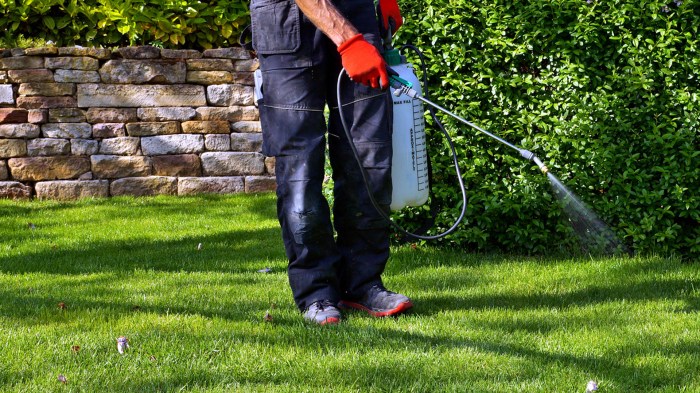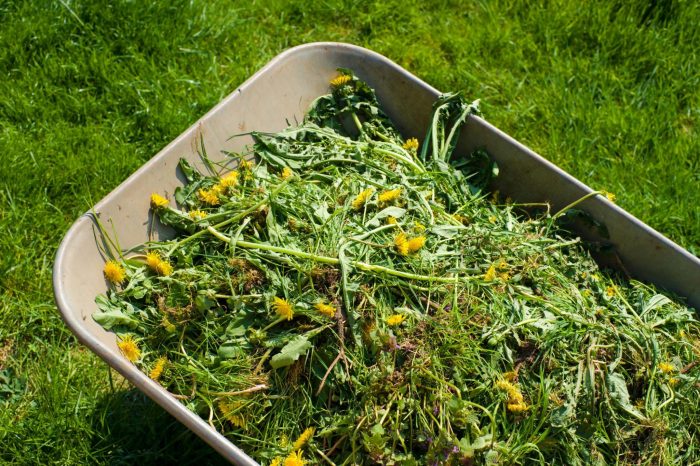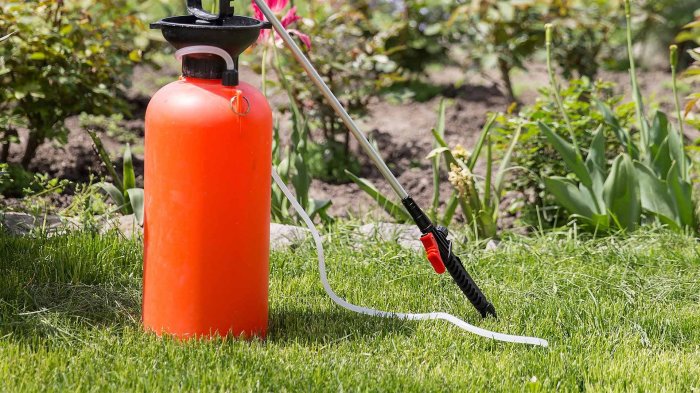Best Yard Care Near Me Find the Perfect Service
Best yard care near me? Finding the right local service can transform your lawn from drab to fab! This guide breaks down everything you need to know, from comparing prices and services to understanding contracts and choosing the best approach for your yard’s unique needs. We’ll cover everything from mowing techniques to organic vs. chemical treatments, helping you make informed decisions and achieve a lush, healthy lawn.
We’ll explore how to find reputable providers, read reviews, ask the right questions, and even draft an effective email to request a quote. Understanding the different services offered – lawn maintenance, landscaping, tree care – and the factors affecting their cost is key. Learn how to navigate contracts, avoid common pitfalls, and ultimately, get the best possible care for your outdoor space.
Understanding Local Yard Care Services: Best Yard Care Near Me
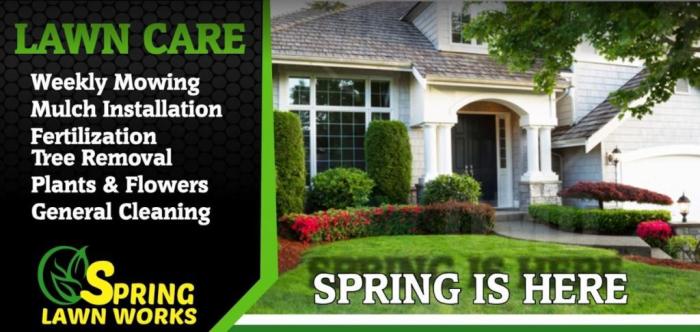
Source: lawncarespring.com
Finding the right yard care service can significantly improve your property’s curb appeal and save you valuable time. Understanding the various services offered and pricing structures is crucial for making an informed decision. This section will explore the landscape of local yard care, helping you navigate the options available in your area.
Types of Yard Care Services
Local yard care services vary widely depending on geographic location and provider. Common offerings include lawn mowing, edging, trimming, weeding, fertilization, aeration, overseeding, pest and weed control, and landscaping design and installation. Some providers specialize in specific areas, such as organic lawn care or hardscape maintenance (patios, walkways). Others offer comprehensive packages bundling multiple services. For example, a basic package might include mowing and edging, while a premium package might add fertilization and weed control. Seasonal services, like leaf removal in the fall and spring cleanup, are also frequently available.
Pricing Structures and Packages
Pricing for yard care services varies greatly based on several factors. Providers often use different pricing models, including per-service charges, hourly rates, or fixed-price packages. Per-service charges are common for individual tasks like mowing or trimming, while hourly rates are more typical for larger projects or those requiring more specialized skills. Fixed-price packages offer a set price for a bundle of services, providing predictability in budgeting. Comparing these different models is essential to determine the best value for your needs.
Factors Influencing Yard Care Costs
Several factors influence the overall cost of yard care. The size of your yard is a primary determinant; larger yards naturally require more time and resources, leading to higher costs. Service frequency also impacts pricing; weekly mowing will be more expensive than bi-weekly service. The specific services requested also play a role; fertilization, aeration, and pest control are typically more expensive than basic mowing and edging. The provider’s experience and reputation can also influence pricing; established companies with positive reviews may charge more than newer, smaller businesses. Finally, location can play a part, with urban areas potentially commanding higher prices due to factors like increased labor costs and competition.
Comparison of Local Providers
The following table compares four hypothetical local providers. Remember to research providers in your specific area for accurate pricing and service offerings. Customer reviews are represented here as a simplified rating out of 5 stars. Actual reviews should be consulted from multiple sources for a comprehensive understanding.
| Provider | Services Offered | Pricing (Example – Monthly Package) | Customer Review (5-Star Scale) |
|---|---|---|---|
| GreenThumb Landscaping | Mowing, edging, fertilization, and weed control | $150 | 4.5 |
| Nature’s Best Yard Care | Mowing, edging, trimming, leaf removal (seasonal) | $120 | 4.0 |
| Perfect Lawn Pros | Mowing, edging, fertilization, aeration, pest control | $200 | 4.8 |
| Eco-Friendly Gardens | Organic lawn care, mowing, weeding, and fertilization | $180 | 4.7 |
Evaluating Service Quality and Reputation
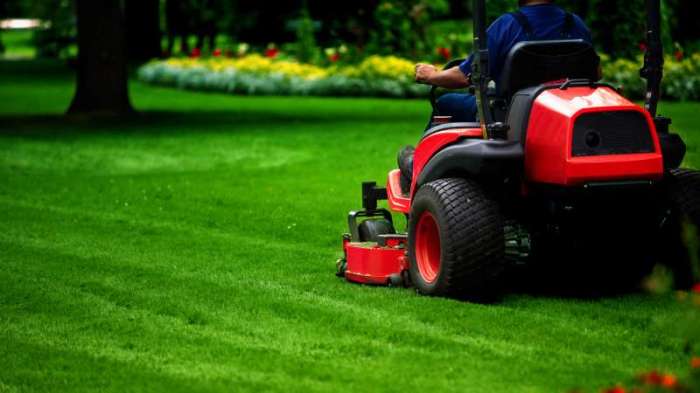
Source: sandiegolandscapeandlawncare.com
Choosing the right yard care service involves more than just comparing prices. A thorough evaluation of their quality and reputation is crucial for ensuring you get the results you expect and avoid potential headaches down the line. This includes looking at customer reviews, verifying their licensing and insurance, and asking the right questions during a consultation.
Online reviews offer a valuable glimpse into a company’s performance. Positive reviews often highlight aspects like reliable service, attention to detail, professional communication, and the overall quality of the work performed. For example, a positive review might say something like, “John’s Lawn Care was fantastic! They were punctual, did an amazing job mowing and edging, and cleaned up perfectly afterwards. Highly recommend!” Conversely, negative reviews often point to issues such as missed appointments, shoddy workmanship, poor communication, or billing problems. A negative review might read, “Avoid Acme Landscaping at all costs. They were late, the work was sloppy, and they left a mess behind. I would not use them again.”
Verifying Licensing and Insurance, Best yard care near me
It’s essential to confirm that a yard care service provider holds the necessary licenses and insurance to operate legally and protect you from liability. Contact your local government’s licensing board or department to verify their license status. Request proof of their general liability and workers’ compensation insurance. This documentation protects you from financial responsibility if an accident occurs on your property or if the service provider causes damage. The insurance policy should clearly state the coverage amounts and effective dates. You can also ask to see their certificate of insurance, which is often provided to clients.
Analyzing Online Reviews and Ratings
Before hiring any service, thoroughly examine their online presence. Check platforms like Google My Business, Yelp, Facebook, and Angie’s List for reviews and ratings. Pay attention to the overall rating and the consistency of feedback. A few negative reviews aren’t necessarily a deal-breaker, but a pattern of negative feedback should raise concerns. Look for recurring themes in both positive and negative reviews to gain a well-rounded understanding of the company’s strengths and weaknesses. For example, consistently positive feedback about their responsiveness to customer inquiries indicates strong communication skills.
Questions to Ask Potential Providers
Preparing a list of questions to ask potential yard care providers during consultations ensures you receive all the necessary information before making a decision. This proactive approach helps you assess their professionalism and expertise.
Here’s a checklist of key questions:
- What services do you offer, and what is your pricing structure?
- Can you provide references from previous clients?
- What is your process for handling issues or complaints?
- What type of equipment do you use, and is it regularly maintained?
- What is your experience with different types of lawns and landscaping challenges?
- What is your policy on cancellations or rescheduling?
- What is your payment policy and schedule?
- What is your guarantee or warranty on the services provided?
Specific Yard Care Services Offered

Source: medium.com
Choosing the right yard care service depends on understanding the specific services offered and how they’re performed. This section details common services, their processes, and the advantages and disadvantages of different approaches.
Many local providers offer a range of services tailored to individual needs and property types. Understanding these services allows you to make informed decisions about your lawn’s health and appearance.
Lawn Mowing Procedures
Lawn mowing is fundamental to lawn care. Proper mowing techniques promote healthy grass growth. The process involves adjusting the mower’s cutting height based on grass type and desired length, ensuring even cuts to avoid scalping, and regularly emptying the grass catcher or mulching clippings back into the lawn. Different mowing patterns (e.g., alternating directions each time) can also help prevent soil compaction. Choosing the right equipment – rotary, reel, or robotic mowers – also plays a significant role in achieving the desired results. Rotary mowers are the most common, offering versatility, while reel mowers provide a very precise, clean cut, suitable for smaller, finely manicured lawns. Robotic mowers offer convenience and automated mowing schedules.
Fertilization Procedures
Fertilization replenishes essential nutrients in the soil, promoting healthy, vibrant grass. This usually involves spreading granular or liquid fertilizers across the lawn, following the manufacturer’s instructions carefully to avoid over-fertilization, which can harm the grass and environment. The type and amount of fertilizer depend on soil testing results, grass type, and the time of year. Application methods vary, including broadcasting (spreading evenly), banding (applying in strips), and injection (applying directly to the soil). Proper timing is crucial for optimal nutrient uptake by the grass.
Weed Control Procedures
Weed control aims to eliminate unwanted plants that compete with grass for resources. Methods range from manual weeding (pulling weeds by hand) to applying pre-emergent herbicides (preventing weed seeds from germinating) and post-emergent herbicides (killing existing weeds). Herbicides can be selective (targeting specific weeds) or non-selective (killing all vegetation). Organic weed control methods, such as using vinegar or boiling water, are less effective but environmentally friendly. Careful application and following label instructions are vital to avoid harming desirable plants or contaminating water sources.
Pest Management Procedures
Pest management addresses insects, diseases, and other pests that can damage the lawn. This might involve inspecting the lawn for signs of infestation, identifying the specific pest, and then applying appropriate control measures. These measures can include using insecticides, fungicides, or other pest control products. Integrated Pest Management (IPM) strategies emphasize using the least-toxic methods possible, starting with preventative measures and only resorting to chemical controls when necessary. Regular lawn maintenance and proper fertilization can also help prevent pest problems.
Organic vs. Chemical Treatments: Benefits and Drawbacks
The choice between organic and chemical treatments involves weighing environmental impact against effectiveness.
| Treatment Type | Benefits | Drawbacks |
|---|---|---|
| Organic | Environmentally friendly, safer for pets and children, and often uses natural ingredients. | May be less effective than chemical treatments, may require more frequent applications, and can be more expensive. |
| Chemical | Highly effective, often provides faster results, and can be more cost-effective in the long run. | Can harm beneficial insects and other organisms, potential environmental risks if misused, may leave chemical residues. |
Lawn Mowing Techniques and Equipment
Different mowing techniques and equipment choices influence lawn health and appearance.
- Mowing Height: Adjusting the mower’s height based on grass type is crucial for healthy growth. Cutting too low can stress the grass, while cutting too high can lead to a less manicured look.
- Mowing Pattern: Alternating mowing patterns help prevent soil compaction and promote even growth.
- Mower Type: Rotary mowers are versatile and widely used; reel mowers provide a precise cut; robotic mowers offer automation and convenience.
- Mulching vs. Bagging: Mulching returns finely cut grass clippings to the lawn as fertilizer, while bagging collects the clippings.
Categories of Yard Care Services
Local providers typically categorize their services to help clients easily identify their needs.
- Lawn Maintenance: This usually includes mowing, fertilization, weed control, and pest management.
- Landscaping: This encompasses design, installation, and maintenance of gardens, flowerbeds, and other landscaping features.
- Tree Care: This includes pruning, trimming, disease treatment, and removal of trees.
- Irrigation: Installation, repair, and maintenance of sprinkler systems.
- Aeration and Overseeding: Improving soil health and grass density.
Finding and Contacting Local Providers
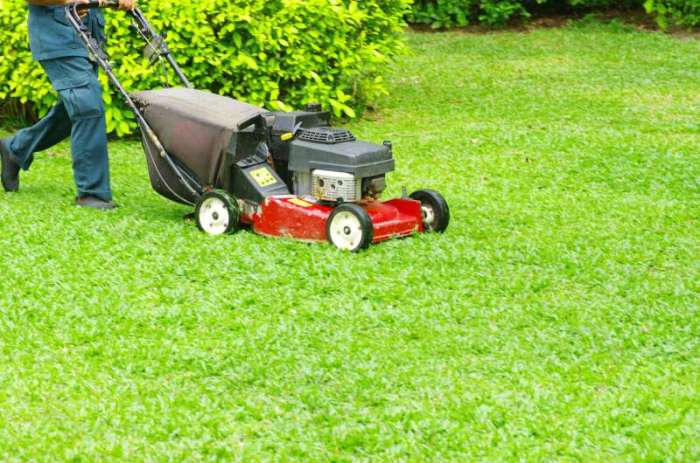
Source: sandiegolandscapeandlawncare.com
Finding the right yard care service for your needs involves more than just knowing what services you want. You need to effectively locate providers and communicate your requirements to get the best quotes and service. This section Artikels strategies for finding and contacting local yard care professionals.
Finding local yard care services is easier than ever thanks to online resources. A quick search on Google, Bing, or other search engines using terms like “yard care near me,” “lawn mowing services [your city/zip code],” or “landscaping companies [your neighborhood]” will yield numerous results. Online directories like Yelp, Angie’s List, and Nextdoor also offer reviews and ratings, helping you filter options based on customer feedback. Remember to be specific in your search terms; for example, instead of just “landscaping,” try “organic lawn care” if that’s your preference.
Using Online Search Engines and Directories
Effective use of online search engines and directories requires careful selection and result analysis. Start with broad terms, then refine your search based on location, services offered, and customer reviews. Pay close attention to the star ratings and read a few reviews to get a sense of each company’s reputation. Look for consistency in positive and negative feedback – a few isolated negative reviews might be understandable, but a pattern of negative feedback should raise concerns. Many directories allow you to filter results by distance, price range, and other criteria, making it easy to find services that fit your needs and budget. For example, searching for “lawn care near me” on Google Maps will show you businesses on a map, complete with reviews, photos, and contact information.
Contacting Potential Providers
Once you’ve identified a few potential providers, contacting them is the next step. Most businesses offer multiple contact methods. You can call them directly using the phone number listed on their website or directory profile. This allows for immediate interaction and clarification of questions. Email is another convenient option, especially if you have detailed questions or need a written quote. Many companies also provide online contact forms on their websites, making it easy to send a message with your specific needs.
Effective Communication Strategies
When contacting potential providers, clear and concise communication is crucial. Clearly state your needs, including the size of your yard, the type of services you require (e.g., mowing, fertilization, weed control), and your preferred frequency of service. Inquire about their pricing structure – whether they charge per visit, per square foot, or by the job – and ask for a detailed quote. Don’t hesitate to ask about their experience, insurance coverage, and the types of equipment they use. Professional and courteous communication will improve your chances of getting a prompt and helpful response.
Sample Email Requesting a Quote
Subject: Quote Request – Lawn Care Services
Dear [Provider Name],
My name is [Your Name] and I am writing to request a quote for lawn care services at my property located at [Your Address]. My yard is approximately [Size of Yard] and I am interested in [List Specific Services, e.g., lawn mowing, fertilization, weed control]. I would appreciate it if you could provide me with a detailed quote outlining your pricing structure and service schedule. Please also let me know about your experience and insurance coverage.
Thank you for your time and consideration.
Sincerely,
[Your Name]
[Your Phone Number]
[Your Email Address]
Understanding Contracts and Agreements
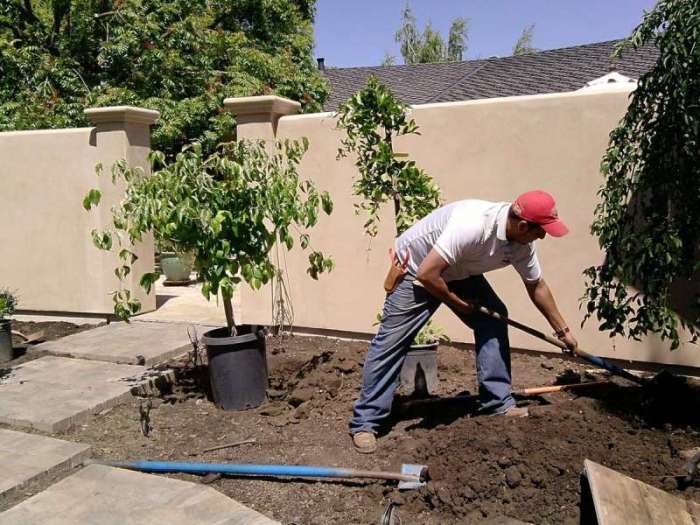
Source: sandiegolandscapeandlawncare.com
Signing a contract with a yard care service provider is a crucial step in ensuring a smooth and satisfactory experience. A well-written contract protects both the client and the provider, outlining expectations and responsibilities clearly. Understanding the key elements and potential issues before signing is essential to avoid future disagreements.
Key Contract Elements
A typical yard care service contract will include several key elements. These elements define the scope of work, payment terms, and responsibilities of both parties. Failing to carefully review these elements can lead to misunderstandings and disputes.
Key Clauses in a Yard Care Service Contract
Several crucial clauses should be included in any yard care service contract. These clauses clarify the services provided, payment schedules, and dispute resolution mechanisms. A comprehensive contract minimizes the risk of future problems.
- Service Description: A detailed description of the services to be provided (e.g., mowing, edging, fertilization, weed control, etc.), including frequency and specific areas to be covered.
- Payment Terms: Clearly stated payment schedule (e.g., monthly, per visit, per service), payment methods accepted, and any late payment penalties.
- Contract Period: The duration of the contract (e.g., seasonal, yearly, specific dates) and terms for renewal or termination.
- Cancellation Policy: The procedure for canceling the contract by either party, including any associated fees or penalties.
- Liability Clause: Specifies the liability of the service provider for any damages caused during the service provision. This might include damage to property or injury to individuals.
- Dispute Resolution: Artikels the process for resolving any disputes that may arise between the client and the provider, such as mediation or arbitration.
Importance of Reviewing Contract Terms
Before signing any yard care contract, thoroughly review each clause. Don’t hesitate to ask questions if anything is unclear. Understanding the terms protects you from unexpected costs or responsibilities. For instance, a poorly defined service description might lead to disputes about the extent of the work performed. Similarly, unclear payment terms could result in unexpected bills.
Common Contract Disputes
Several common disputes arise from yard care service contracts. These often stem from unclear contract language or a failure to meet expectations. Addressing these potential issues proactively is crucial.
- Unmet Expectations: Disputes often arise when the services provided don’t match the description in the contract. For example, if the contract specifies “weekly mowing,” but the service provider only mows every other week, this could lead to a dispute.
- Damage to Property: Damage to the client’s property during service provision is another frequent source of conflict. The contract should clearly define liability in such cases.
- Payment Disputes: Disagreements over payment amounts, due dates, or late payment penalties are common. Clear payment terms in the contract can help prevent these issues.
- Contract Termination: Disputes can occur if one party attempts to terminate the contract without adhering to the agreed-upon cancellation policy.
Sample Yard Care Service Contract
This is a sample contract and should be reviewed and modified by legal counsel to ensure it complies with applicable laws and regulations.
This Yard Care Service Agreement is made between [Client Name], residing at [Client Address] (hereinafter “Client”), and [Service Provider Name], located at [Service Provider Address] (hereinafter “Provider”). This agreement commences on [Start Date] and ends on [End Date]. The Provider agrees to provide the following services: [Detailed List of Services, including frequency]. The Client agrees to pay the Provider [Payment Amount] [Payment Frequency]. Both parties agree to the dispute resolution process Artikeld in [Dispute Resolution Clause]. This contract can be terminated by either party with [Notice Period] written notice. The Provider is liable for any damages caused by negligence during the provision of services.
Visual Representation of Yard Care Processes

Source: thumbtack.com
Understanding the visual aspects of yard care helps you assess the quality of service and track progress. This section provides visual descriptions of key processes, enabling you to better communicate your needs to your chosen provider and monitor their work effectively.
Lawn Fertilization Process
A healthy lawn starts with proper fertilization. The visual stages typically involve: 1) Pre-application: The lawn appears somewhat dull, possibly with patchy areas indicating nutrient deficiency. 2) Application: A granular or liquid fertilizer is being spread evenly across the lawn using a spreader or sprayer. The fertilizer may be visible as a light dusting on the grass blades. 3) Post-treatment (short-term): The lawn might appear slightly darker or greener within a week, as the nutrients begin to take effect. 4) Post-treatment (long-term): Over several weeks, the lawn shows significant improvement; it’s thicker, greener, and more vibrant. Bare patches are filled in, and the overall health is noticeably better.
Weed Control Process
Effective weed control significantly improves the appearance of a lawn. The visual differences are dramatic: 1) Before Treatment: The lawn is visibly marred by various weeds – broadleaf, grassy, or both – interspersed throughout the grass. The weeds may be taller, more noticeable, and detract from the lawn’s aesthetic appeal. 2) Application: A weed killer, either liquid or granular, is applied to the lawn, targeting the weeds specifically. 3) Post-treatment (short-term): Within days, the weeds may appear wilted or discolored. 4) Post-treatment (long-term): After a few weeks, the treated weeds have significantly reduced or completely disappeared, resulting in a cleaner, more uniform lawn.
Lawn Mowing Equipment and Use
Different mowing equipment is suited to various lawn sizes and complexities. 1) Push Reel Mowers: These are manual mowers with rotating blades. They are ideal for small, flat lawns and offer a clean, precise cut. Imagine a simple, lightweight mower with a long handle and visible rotating blades. 2) Rotary Mowers (Gas or Electric): These mowers have a spinning blade that cuts the grass. They are suitable for larger lawns and offer versatility, though the cut may be less precise than a reel mower. Picture a mower with a larger deck and a single, rapidly rotating blade underneath. 3) Robotic Mowers: These are automated mowers that use sensors and programmed boundaries to cut the grass independently. They are best for larger, relatively flat lawns and offer convenience. Visualize a small, low-profile mower moving autonomously across the lawn, often with a distinctive design.
Landscaping Designs for Different Yard Sizes and Styles
Landscaping enhances the overall appeal of a property. 1) Small Yards: A minimalist design with vertical elements like trellises and strategically placed shrubs is visually appealing and maximizes space. Imagine a compact garden with a neatly trimmed hedge, a small patio area, and a climbing rose on a trellis. 2) Medium Yards: A more diverse design incorporating flowerbeds, walkways, and a combination of shrubs and trees is possible. Picture a yard with a curved walkway leading to a patio, bordered by neatly arranged flowerbeds and a few mature shrubs. 3) Large Yards: More elaborate designs with extensive planting, water features, and potentially even a small orchard or vegetable garden are feasible. Visualize a spacious lawn with a meandering stream, mature trees providing shade, and various flowerbeds and garden areas strategically placed.
Epilogue
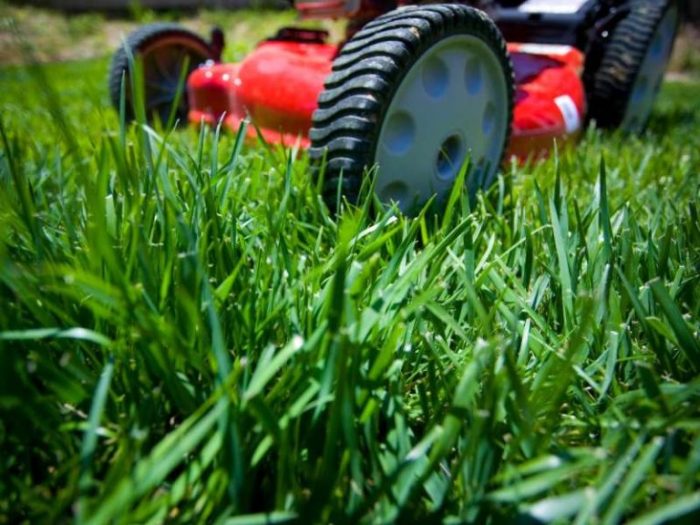
Source: sandiegolandscapeandlawncare.com
Transforming your yard into a stunning oasis is within reach! By following the steps outlined in this guide, you can confidently navigate the world of local yard care services. Remember to prioritize reputable providers, thoroughly review contracts, and communicate clearly about your needs. With a little planning and research, you can enjoy a beautiful, healthy lawn for years to come. Happy gardening!

